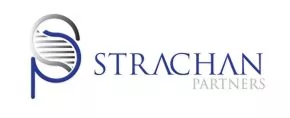On 8th October 2018, President Mohammadu Buhari signed an Executive Order called the Voluntary Offshore Assets Regularization Scheme ("VOARS") (Executive Order Number 008) aimed at combating tax evasion and regularizing offshore assets owned by persons resident in Nigeria for tax purposes. By this Order, Nigerian taxpayers who have offshore assets and income and are in default of their tax obligations are required to voluntarily declare these assets and income, and to pay taxes due within twelve (12) months. This Newsletter highlights and addresses issues arising from this Executive Order.
- What is the legal basis for the Executive Order?
- What are the categories of persons eligible to participate in the Scheme?
- How will the Scheme be implemented?
- Can the Voluntary Offshore Assets Regularization Facility in Switzerland be validly appointed as an intermediary of the Federal Government of Nigeria?
- Can assets be monetized for tax purposes?
- What are the benefits of compliance with the Scheme?
- What are the consequences for non-compliance?
A. What is the legal basis for the Executive Order?
The President of the Federal Republic of Nigeria is empowered under Section 5 of the Constitution of the Federal Republic of Nigeria 1999 as amended (CFRN) to exercise the executive powers of the Federation which extend to the execution and maintenance of the constitution and all laws made by the National Assembly. These powers are exercised via the issuance of executive orders such as the Executive Order 008.
The Preamble to the Executive Order reproduces the provisions of Section 24(f) of the CFRN,
"It shall be the duty of every citizen to declare his income honestly to appropriate and lawful agencies and pay his tax promptly".
The Order includes assets in addition to income for the purposes of making a voluntary declaration under the Scheme.
The Executive Order seeks to enforce the taxation of the income of individuals and companies resident in Nigeria for tax purposes. It is important to note that an individual or a company resident in Nigeria is liable to pay taxes on income accruing in, derived from, brought into or received in Nigeria.
B. What are the categories of persons eligible to participate in the Scheme?
The Scheme is open to all persons, entities and their intermediaries holding offshore assets and who are in default of their tax liabilities. These include persons who are not under investigation by the tax authorities and those who have been determined to be innocent after investigation or legal proceedings.
C. How will the Scheme be implemented?
Eligible persons will be required to voluntarily declare their offshore assets and income relating to the preceding thirty (30) years of assessment within twelve (12) months effective from 8th October 2018. In order to declare these assets and income, an Eligibility Certificate has to be obtained. To obtain this Certificate, the taxpayer has to voluntarily elect to access the Voluntary Offshore Assets Regularization Facility in Switzerland (VOARFS) by paying 2% facility access fees and submitting to compliance procedures required by the Swiss authorities. The VOARFS has been described in the Executive Order as the qualified intermediary of the Federal Government of Nigeria rendering advisory services for this purpose.
Taxpayers will also be required to establish a Swiss nexus (management or financial institutions) for offshore assets held anywhere in the world in order to assess the Scheme.
The Executive Order makes mention of an eligible class of persons who applied for and received "FGN Special Clearance" to access the Scheme.
After accessing the Scheme, taxes which are outstanding are to be paid to the Federal Government of Nigeria. The Executive Order provides that a taxpayer who voluntarily submits to the Scheme will be required to make a payment of a one-time levy of thirty-five percent (35%) of offshore assets in lieu of all outstanding taxes, penalties, and interest.
A declaration under the Scheme is to be voluntary, full, honest and complete.
D. Can the Voluntary Offshore Assets Regularization Facility in Switzerland be validly appointed as an intermediary of the Federal Government of Nigeria?
Nigeria and Switzerland are jurisdictions participating in the Organization for Economic Cooperation and Developments Convention on Mutual Administrative Assistance in Tax Matters (the Convention). This Convention encourages cooperation among tax authorities of participating jurisdictions to tackle tax avoidance and evasion and allows participating states to apply to other states for assistance in the recovery of tax claims. Hence, the establishment of VOARS in Switzerland and the appointment of the VOAR Facility in Switzerland as an intermediary of the Federal Government in Nigeria pursuant to the Convention are valid. In the absence of a Convention, a bilateral agreement for this purpose can be validly entered into by the two states.
It is important to note that in December 2017, Nigeria signed a Memorandum of Understanding with Switzerland for the restitution of illegally acquired assets. Therefore, the Scheme will also aid in identifying illegally acquired assets and enhance the fight against corruption and money laundering.
E. Can assets be monetized for tax purposes?
According to the Order, assets include liquid assets (bank balances), stocks and bonds held in portfolios, insurance policies, shares in listed or unlisted offshore companies, property assets, all manners of assets held directly or indirectly through corporate entities, trust structures, non-Nigerian resident companies, and intermediaries.
For assets other than real estate assets, income accruing to a resident from these assets is taxable under Nigerian law as long as this income is brought into or received in Nigeria. Real estate assets, on the other hand, are subject only to the property tax laws and regulations of the state in which they are situated (the Lex Situs rule). However, the income generated from these assets, rental income and capital gains, for example, is subject to tax under Nigerian law where this income is brought into or received in Nigeria.
Therefore, the monetization of these assets and the imposition of a flat levy on the value of offshore assets to satisfy tax claims, as opposed to the computation of taxes due according to the rates provided for in the various tax laws, and upon the appropriate tax base is subject to question. The fact that the VOARS is an amnesty initiative and is synonymous with a plea bargain arrangement is not ignored. However, equity as a canon of taxation implies the fair and equitable distribution of tax burdens to taxpayers.
In this instance, the flat rate of 35% may be to the benefit of some and to the detriment of others. Where the tax burden according to the extant tax laws, even with the addition of accrued interests and penalties, will be lesser than the tax burden to be borne upon the application of the flat rate of 35% of the value of the offshore assets, the taxpayer will cry foul. Whereas, a taxpayer who will enjoy a lesser tax burden will go home smiling with all the benefits of the Scheme. The waiver of prosecution, interests, and penalties is insufficient consolation in this regard as it is primarily an incentive to encourage participation in the Scheme.
Therefore, the approach of the Federal Government of Nigeria (FGN) under the VAID Scheme, wherein defaulting taxpayers where directed to declare their assets and income and to pay taxes due on them (according to the extant tax laws) with the waiver of prosecution, interests, and penalties due as an incentive is preferred. In the alternative, defaulting taxpayers can be given the option to choose between payment of the 35% levy on the value of their offshore assets and the payment of outstanding taxes (based on the rates provided for in the tax laws) with attendant waivers.
F. What are the benefits of compliance with the Scheme?
The Scheme, which is very similar to the Voluntary Assets and Income Declaration Scheme (VAIDS), is an amnesty initiative by the government to encourage taxpayer compliance and to widen the tax net. This Scheme has benefits of the permanent waiver of criminal prosecution for tax offences and offences related to offshore assets, penalties and interests concerning such declared offshore assets; immunity from tax audit of the declared and regularized assets; and a waiver of interest and penalties on the declared and regularized offshore assets.
G. What are the consequences for non-compliance with the Scheme?
Where persons eligible to participate in the Scheme fail to comply during the subsistence of the Scheme, the following consequences will follow:
- Investigation and enforcement procedures will be carried out against the defaulting taxpayer;
- Loss of the right to plea bargain;
- Liability to pay the principal sum of taxes due with penalties and accrued interests;
- Liability to undergo a comprehensive tax audit; and
- Withdrawal of any reliefs.
CONCLUSION:
This Scheme primarily aims to encourage voluntary compliance with the tax laws and to generate revenue for the state. Full compliance with this Scheme is encouraged because of the consequential benefits. Also, tax collecting agencies in Nigeria, by virtue of the Multilateral Competent Authority Agreement on the Exchange of Country by Country Reports signed by Nigeria in January 2016 and which facilitates the automatic exchange of information, have access to documentation showing assets and income held by residents outside the country. It is hoped that the flat levy imposed by the Order will be reconsidered and that Practice Directions detailing the procedure for compliance with the Scheme and providing clarifications regarding terms such as the FGN Special Clearance will be issued in earnest to ensure certainty of the required procedure.
The content of this article is intended to provide a general guide to the subject matter. Specialist advice should be sought about your specific circumstances.

